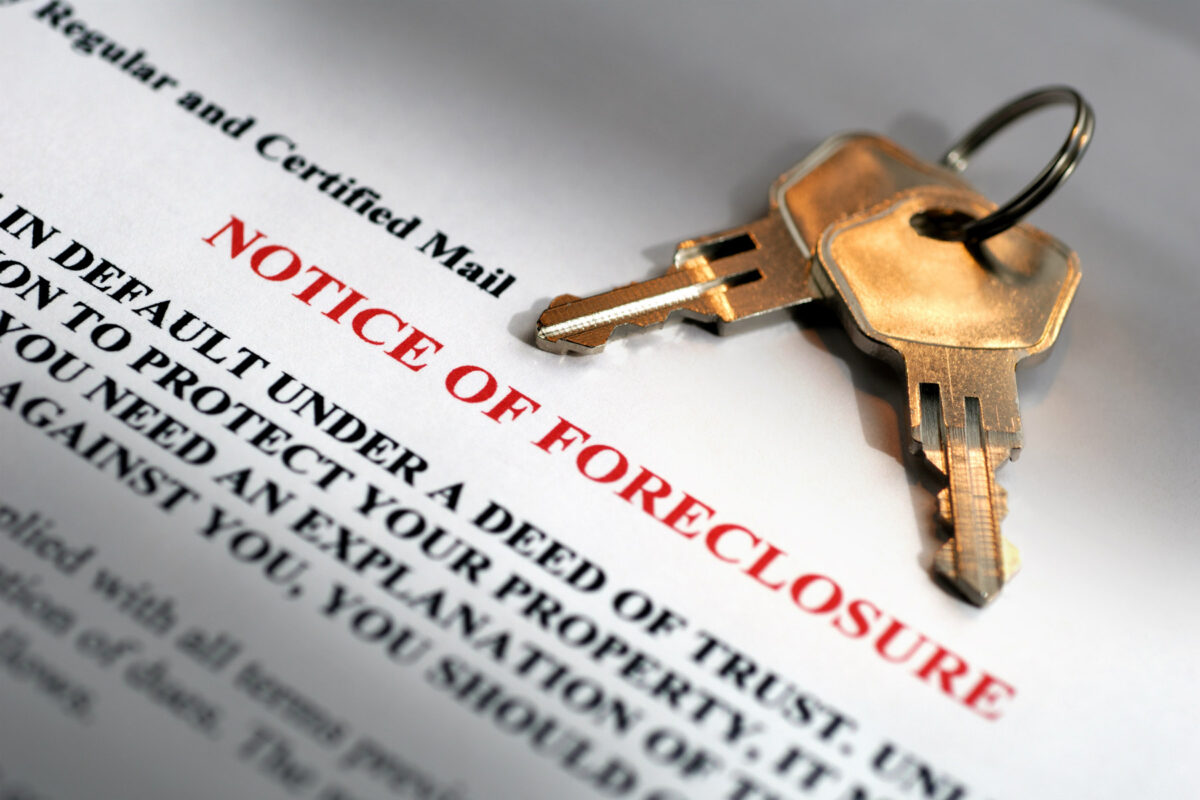The rising costs of gasoline, groceries, and other essentials have hit every American in the money belt lately. Some people struggle to make ends meet, including paying for their residences. If you find yourself falling short on your monthly mortgage payment, you may face either foreclosure or decide to short-sale your property to get out from under that large monthly debt. Before either one of those happens, though, you need to know how each one differs from the other.
Foreclosure vs Short Sale: What Homeowners Need to Know
Foreclosure
When a homeowner (aka “borrower”) does not make their mortgage payment for an extended period of time (three to six months), the mortgage company issues the homeowner a Notice of Default. This puts the property into pre-foreclosure. At that time, the borrower may make arrangements to pay the amount they owe for the missing payments in full, conduct a deed in lieu of foreclosure, or choose to enter into a short sale. The deed in lieu of foreclosure transfers ownership/title from the borrower to the lender. This releases the borrower from any debt owed to the lender in full. If an agreement cannot be reached between the borrower and the lender during this pre-foreclosure period, the property then enters into official foreclosure.
Once the borrower gets formally evicted from the property, the lender then puts the home up for sale at auction. These public auctions either take place at the home itself or at the courthouse. If no one buys the house at auction, it then becomes a bank-owned property (aka “REO”). Since lenders are in the money business and not the real estate business, they tend to be very open to working on an arrangement between the borrower and themselves whenever possible.
Short Sale
If a homeowner is struggling but has not fallen behind on their payments and their home is worth less than they owe, they might want to try a short sale instead of going into foreclosure. In a short sale, the lender agrees to allow the homeowner to sell the property for less than the amount owed. However, unlike what the name suggests, a short sale often takes a long time to complete. Fortunately, though, it only takes two years (sometimes less) before a lender considers you a viable candidate for a new home loan. A foreclosure, on the other hand, follows you around for seven to ten years.
Deficiency Judgments
One important thing to note is that lenders may obtain a deficiency judgment to make up the difference between what a borrower owes and what the property sells for. With foreclosures, the lender must file a lawsuit to obtain the judgment within three months of the foreclosure’s sale. With a short sale, the lender retains the right to obtain a deficiency judgment for the difference. However, you can avoid this possibility by making sure the short sale agreement includes language that specifically states that the lender considers all debt paid in full at the conclusion of the sale.


